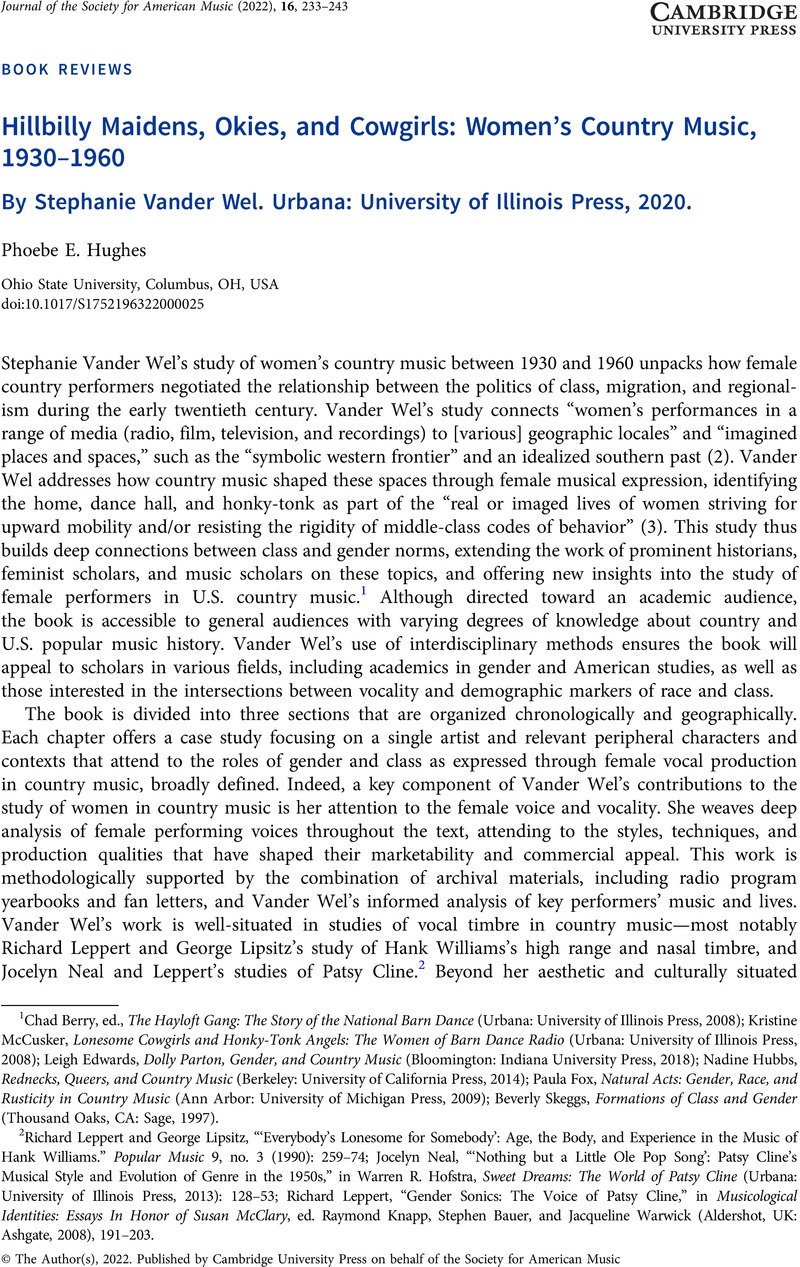No CrossRef data available.
Published online by Cambridge University Press: 11 April 2022

1 Berry, Chad, ed., The Hayloft Gang: The Story of the National Barn Dance (Urbana: University of Illinois Press, 2008)Google Scholar; McCusker, Kristine, Lonesome Cowgirls and Honky-Tonk Angels: The Women of Barn Dance Radio (Urbana: University of Illinois Press, 2008)Google Scholar; Edwards, Leigh, Dolly Parton, Gender, and Country Music (Bloomington: Indiana University Press, 2018)Google Scholar; Hubbs, Nadine, Rednecks, Queers, and Country Music (Berkeley: University of California Press, 2014)CrossRefGoogle Scholar; Fox, Paula, Natural Acts: Gender, Race, and Rusticity in Country Music (Ann Arbor: University of Michigan Press, 2009)CrossRefGoogle Scholar; Skeggs, Beverly, Formations of Class and Gender (Thousand Oaks, CA: Sage, 1997)Google Scholar.
2 Leppert, Richard and Lipsitz, George, “‘Everybody's Lonesome for Somebody’: Age, the Body, and Experience in the Music of Hank Williams.” Popular Music 9, no. 3 (1990): 259–74CrossRefGoogle Scholar; Neal, Jocelyn, “‘Nothing but a Little Ole Pop Song’: Patsy Cline's Musical Style and Evolution of Genre in the 1950s,” in Hofstra, Warren R., Sweet Dreams: The World of Patsy Cline (Urbana: University of Illinois Press, 2013): 128–53Google Scholar; Leppert, Richard, “Gender Sonics: The Voice of Patsy Cline,” in Musicological Identities: Essays In Honor of Susan McClary, ed. Knapp, Raymond, Bauer, Stephen, and Warwick, Jacqueline (Aldershot, UK: Ashgate, 2008), 191–203Google Scholar.